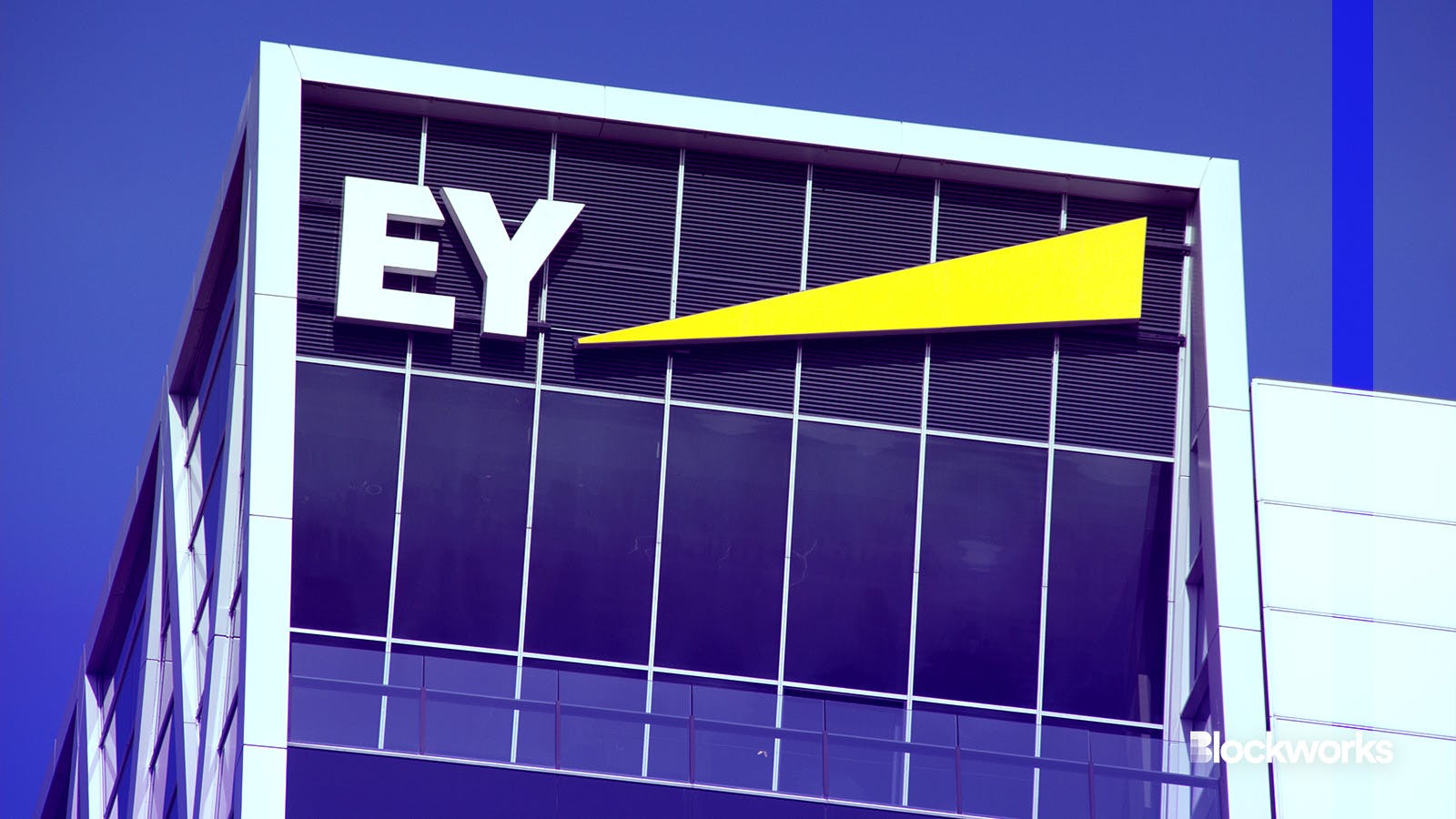‘Big Four’ accounting firm EY to use Polygon PoS for business contracts
EY plans to move the service to Ethereum mainnet and a layer-3 in the future, its blockchain head told Blockworks

JPstock/Shutterstock modified by Blockworks
Ernst & Young revealed an enterprise contract management service that would let clients put contracts on a public blockchain while keeping business information private through zero-knowledge circuits. The firm markets its OpsChain Contract Manager as running on Ethereum, although it currently runs on Polygon proof-of-stake (PoS).
The accounting firm — one of the “big four” alongside Deloitte, KPMG, and PwC — has been toying with business implications for zk proofs since at least 2018. The announcement may show another concrete step toward the institutional use of public blockchains, a month after asset management giant BlackRock launched a tokenized fund on Ethereum.
Read more: Circle debuts way to trade BlackRock tokenized fund shares for USDC
In a press release, EY said the service would bring business agreements to Ethereum, but this isn’t exactly the case. Nightfall, the zero-knowledge rollup EY developed to do things like manage business contracts, actually runs on Polygon PoS, an independent blockchain.
EY Blockchain plans to move Nightfall to Ethereum mainnet and to a layer-3 in Nightfall’s next upgrade, Paul Brody, who has led EY’s blockchain arm since 2016, said.
Brody, reached through a spokesperson, added that Nightfall was developed on Ethereum and is deployed to Ethereum’s test network, but so far, EY’s industrial users have been drawn to Polygon for its low transaction costs.
Private blockchains aren’t private
In a prior career stop, Brody was partly responsible for building IBM’s first blockchain based on the alpha version of Ethereum with the help of Ethereum co-founder Vitalik Buterin, Brody told Blockworks in an interview.
Using blockchain technology for enterprise is not a new idea. In earlier days of Bitcoin and blockchain, groups like the Distributed Ledger Group sprang up to find ways for businesses to make use of distributed ledger technology, often using private blockchains.
This era of so-called enterprise blockchain has mostly fallen out of focus for crypto’s leading edge. Brody said a future for blockchain applications for big business will lie on public blockchains like Ethereum.
Read more: Goldman Sachs head of digital assets: The future is on public blockchains
“The problem with private blockchains is they don’t actually provide privacy,” Brody said. “People jumped into this without really understanding the technology, and it was only after they got into it that it’s like, ‘Oh, everybody in the private chain can still see everything.’”
Private blockchains kept rivals from working together partly because they would reveal sensitive information like, for instance, the quantity and prices of a business’s purchases, Brody explained.
Alongside Nightfall, EY also created Starlight, a zero-knowledge compiler that takes existing smart contracts and privatizes them with hashing.
With these tools, EY will start letting businesses execute business contracts using Polygon’s smart contracts. Nightfall is only accessible to enterprises. The testnet is free, and the full product is priced by EY, Brody said, adding that using a public blockchain makes the deployment cost cheaper for enterprise purposes, since the underlying infrastructure is already built.
A promotional document for the contract manager says EY’s product “revolutionizes how enterprises help manage their contracts by harnessing privacy-enabled blockchain technology to streamline processes and enhance transparency.”
Get the news in your inbox. Explore Blockworks newsletters:
- The Breakdown: Decoding crypto and the markets. Daily.
- 0xResearch: Alpha in your inbox. Think like an analyst.






